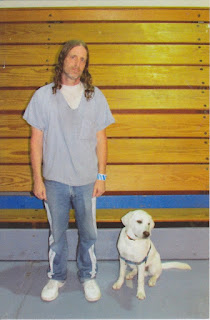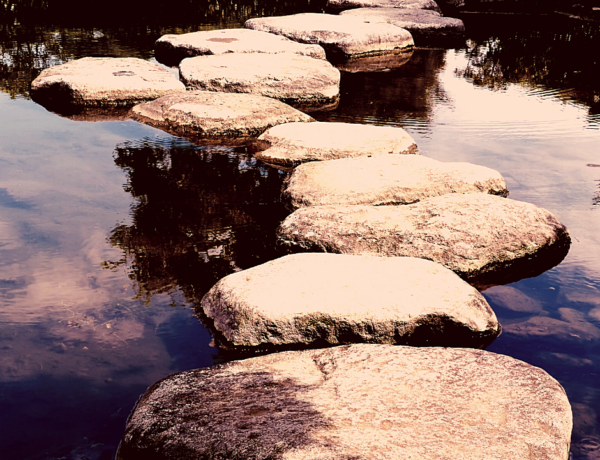Please make a donation to support Minutes Before Six
By J. Michael Stanfield Jr.
Autumn takes me back in time. In the beginning, anyway, when the dry, lukewarm days of fall first replace the humid, sweltering ones of summer.
A mild autumn breeze can somehow remind me of the long-gone and distant past, of childhood and adolescence, of being a teenager, or those mystical, fleeting years of adulthood before prison.
There’s something about the end of summer that brings it all back, the change in temperature or barometric pressure, perhaps, or something in the wind, undetectable odours of dying foliage, maybe. Whatever its cause, the changing season sparks my nostalgia like an old, forgotten song: “Jane Says,” perhaps, or “The Final Cut.”
I’ll be walking back from the chow hall, living one more day of bleak prison life, when the fall wind finds me and carries me away. I suddenly notice the way the sunshine colors the landscape, the way the patchy clouds softly smudge the dense, blue sky, and I’m six years old again, or 12 or 15, 20.
Days with a sun like this, with the wind and temperature just right, don’t belong to the world of concrete and life sentences. These are days from the past, when, as a child, I played with Hot Wheels and Matchbox cars in the dirt.
On days like these, my friends and I would construct a makeshift ramp from a board and a cinder block, and we would spend hours jumping it on our bicycles.
On days like these, I brooded in a high school classroom, foolishly dreaming of the time when school would end and adult independence would begin.
On days like these, I moved into my first apartment, worked on cars, started kindergarten, fell in love, had my heart broken, played in the woods, waded in the creek, went to rock concerts, skipped school, smoked pot, drove drunk, went on fourth grade field trips, went to job interviews, went to family picnics, mowed grass, went to the lake, laughed, cried and got pissed off.
It was on days like these that life was rich and good, and the future was as promising and hopeful as a first kiss with Daisy Pratt in her father’s driveway.
Such recollections are bittersweet, often more bitter and less sweet. In prison, reminiscing about the lost paradise of freedom is something less than pleasant. Nostalgia for the holy and sacred Good Old Days can produce in you, if you’re not careful, a debilitating kind of longing that is not unlike suffocation, a futile, head-against-the-wall, shaking-fist-at-the-sky state of helplessness that can choke the very life from you. And, so, sometimes I think it might be best to forget the past, the things once taken for granted and then lost. After all, what’s done is done, and one must come to terms with one’s reality.
Oh, but then the fall breeze blows against my face once more, and I forget the present, recall some past jewel and marvel at how good those Good Old Days were.
Under marvellous, silver-azure skies, just like the one outside my barred window, my companions and I played and danced and explored the wholesome, good earth like so many young gods. We were unconscious creators, it seems now, a lifetime later, makers of the very universe.
The world seemed to beg to please us, always revealing new magic and fresh excitement, yet we weren’t always excited. We fancied ourselves unhappy. We pretended not to enjoy childhood or adolescence or teenhood. We thought we wanted to be older, to have more money and responsibility.
In spite of our unrealized, but undeniable happiness, we wanted the greener grass of something we were not yet, but would too soon be.
Older people often tried to tell us, in their well-intentioned-but-generationally-ambiguous manner that we would soon miss the days of summer and of school and of restriction that was hardly restriction. They attempted to make a gift of their experience and knowledge, but somehow they forgot that their parents or grandparents had attempted the very same thing; that is to say, they had tried to teach an unteachable language, unharkened prophets they were.
And so we never heeded the urgent utterances from someone else’s long-gone world, the wall-written warning that said: “Enjoy your youth while it lasts!”
It seemed like nonsense to us then. Somewhere inside us, maybe, we knew the old people were right, yet we played out our parts nonetheless, thinking ours was a difficult, hapless lot.
We could not be satisfied until we achieved independence and freedom, even though we had it all along.
Ah, the Good Old Days.
I always had a kind of unconscious feeling that my life wasn’t quite good enough, that it could somehow become more satisfying and fulfilling.
Little did I know that the future would bring a horror and misery that was utterly unfathomable to my hopeful, unsatisfied soul.
While I was indifferent to the sun, the autumn breeze, the puffy-cloud-filled sky, I was unaware my future would consist of concrete, steal, sickness and hunger, that my life would be spent wasting away, growing old and dying inside a cinderblock tomb.
I was so busy envying the future; I failed to realize I was happier and more fulfilled in the present than I would ever be again.
This is the curse of life. We don’t appreciate what we have until it’s gone. We don’t treasure our youth until we’re old.
Or until we come to prison. In which case, an entire early adulthood, midlife and old age can be lost to decades of regret and torment for a life wasted.
“And so it goes,” Kurt Vonnegut so aptly wrote.
Thus I walk across the prison compound, and the autumn breeze feels good, mussing my hair and stirring my nostalgia. The colors of the distant trees are beautiful this time of year. A sea of yellow-orange and scarlet surrounds the prison grounds in a torrent of iridescent splendor.
It’s nice but poignant, in a wistful way, and I nearly yearn for winter and the mercy of its gray-brown death.
 |
| J. Michael Stanfield Jr. (with Jake) |



6 Comments
Jacquelyn A. Stanfield
April 23, 2022 at 3:37 pmTruth be told! I always try to remind myself when complaining about work, health, bills or even the weather….a day will come when I will wish I could return to today! We only get older and less able to enjoy many things we are capable of now. I can’t imagine losing the freedom to choose to waste a day though. But wish I could take a pill that would instantly give me the appreciation you have, for what I inevitably take for granted every single day of my life.
A Friend
January 15, 2017 at 1:07 amThe following comment is from J. Michael Stanfield Jr.:
The comments on my essay are enlightening and encouraging. I bet many of us struggle with "the Zen issue of living in the Now." We look back at our lives and realize we failed to appreciate the beauty of the world or to enjoy the richness of life. And note that history often repeats itself; these often boring, sometimes difficult days in which we are not-yet-where-we-want-to-be may likewise morph into the Good Old Days of tomorrow! The secret. therefore, must be to appreciate the now, whether in prison or free, young or old, and make the most of each moment. No matter where we are, or who we know, or how much money we have, or how much life can suck sometimes – there are inevitable moments of joy and pleasure and beauty. May we all learn to appreciate them when they are here and not lament them when they are gone!
Anonymous
December 23, 2016 at 6:10 pmI believe this short essay is one the best on the site. You are a talented writer. I can imagine how memories can become dangerous in prison. Our life circumstances are very different, so all I can do is wish you the best of luck, going forward.
Anonymous
December 23, 2016 at 5:02 pmThis is an effective work merging themes of season change, nostalgia and regret, with a touch of that difficult zen issue of living in the Now.
Reading it from my perspective, as one does, makes me wonder how time and circumstances drive memory. I am 70, and have presumably had more choices in my adult life that you have, and probably more distractions. I have never been one to think much about childhood and adolescence; I was always a bit of a loner, and an outlier in school, family and the general social world of my peers, so there are not a lot of really good memories that involve other people from that period of my life. Your circumstances have been and are different from mine. Reading your essay reminds me once again how personal memories are, and how time changes their impact. You are a skilled writer; I hope to read more from you.
Arethusa
A Friend
December 23, 2016 at 2:04 amThank you Urban Ranger. It will mean a lot to Michael to know you valued his essay.
urban ranger
December 23, 2016 at 1:56 amI want to say something that would be uplifting. But other than the fact that
this a a beautiful piece, I can think of nothing.
Thank you, Michael.